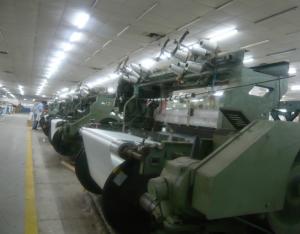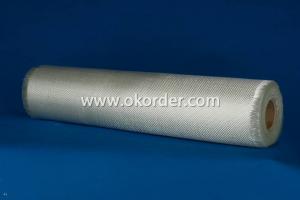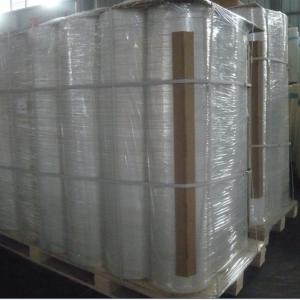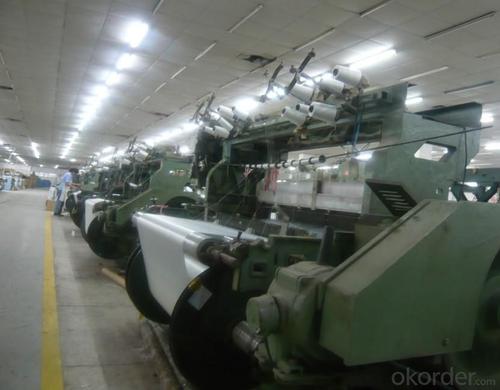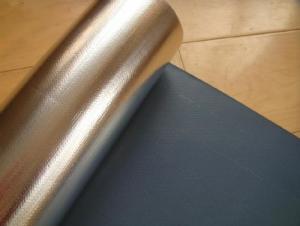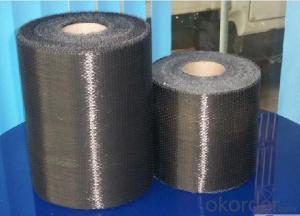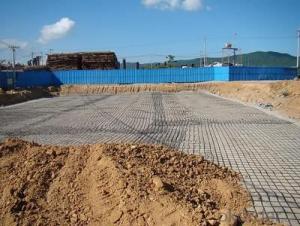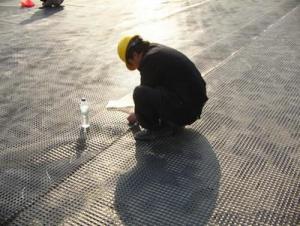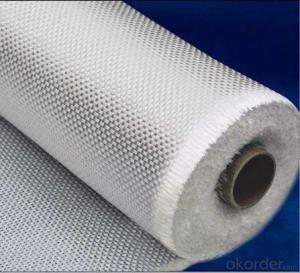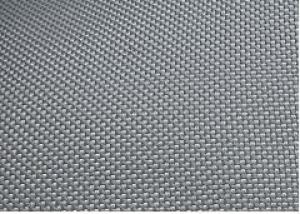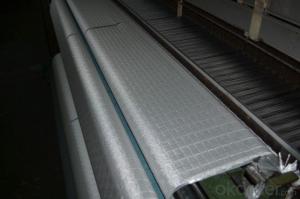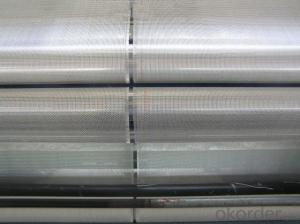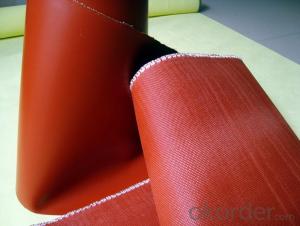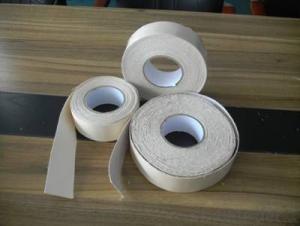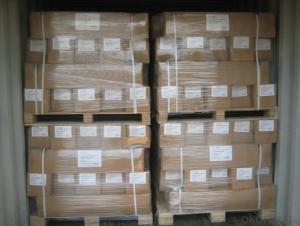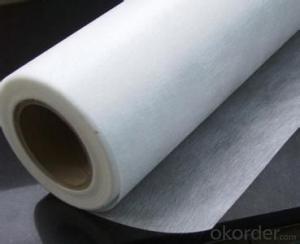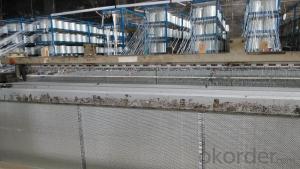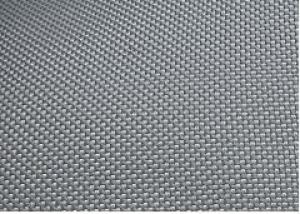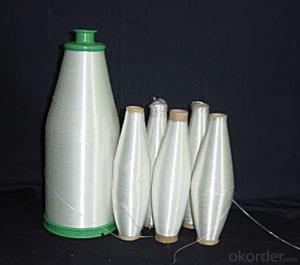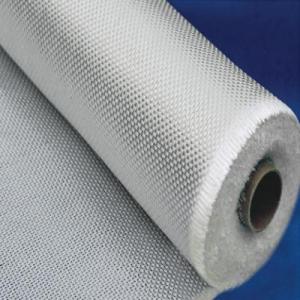Fiberglass Fabric Strip for Best Surfboard Fabrics
- Loading Port:
- Qingdao Port
- Payment Terms:
- TT or LC
- Min Order Qty:
- 10000 M2 m²
- Supply Capability:
- 50000000 M2 Per Year m²/month
OKorder Service Pledge
OKorder Financial Service
You Might Also Like
Introduction of Best Fiberglass Fabrics for surfboard:
Fiberglass fabric is corrosion resistance, high intensity, electricity insulation, compatibility with other resin. Fiberglass fabric is widely used into electric insulation field for PCB or copper clad laminate.
The excellent properties of Best Fiberglass Fabrics for surfboard:
* Dimensional stability
* High Strength
* Fire resistance, High heat resistance
* Good chemical resistance
* Durability
* Forms around complex surface shapes
Packing of Best Fiberglass Fabrics for surfboard:
The Fiberglass fabric for surfboard is wrapped on a paper tube with inner diameters of 50. 8, 76 or 152mm. Each roll is wrapped in a plastic bag, then to be packed in a carton box. The rolls are to be horizontally placed.
Width (cm): 90, 100, 127
Length (m): 100, 200, 300, 400
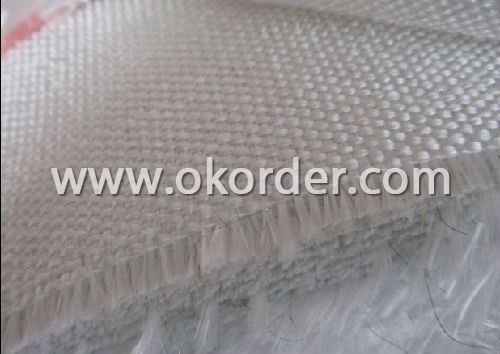
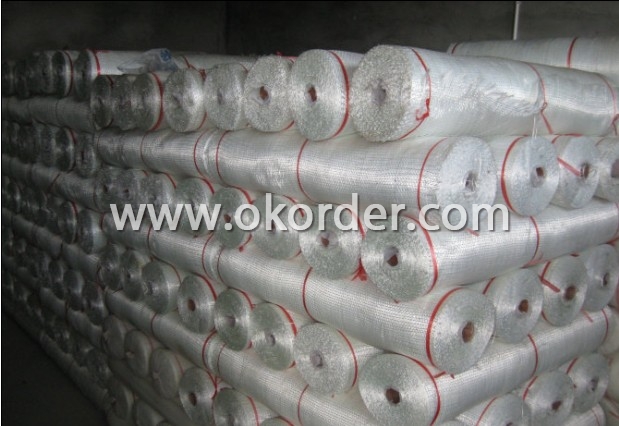
- Q: Can fiberglass fabric be used for making curtains or drapes?
- Yes, fiberglass fabric can be used for making curtains or drapes. It is a versatile material that offers several advantages such as durability, resistance to fire, and easy maintenance. It can also provide insulation, privacy, and block out excessive sunlight if desired. Additionally, fiberglass fabric is available in various colors and patterns, allowing for a wide range of design options for curtains or drapes.
- Q: Can fiberglass fabric be used for insulation in aerospace applications?
- Yes, fiberglass fabric can be used for insulation in aerospace applications. Fiberglass fabric is known for its excellent thermal insulation properties, making it an ideal choice for aerospace applications where temperature regulation is crucial. It is lightweight, flexible, and can withstand high temperatures, making it suitable for use in various aerospace components such as engine compartments, fuel tanks, and aircraft interiors. Additionally, fiberglass fabric is resistant to chemicals, moisture, and fire, providing an added layer of safety and protection in aerospace environments. Overall, fiberglass fabric is a reliable and widely used insulation material in aerospace applications due to its excellent thermal properties and durability.
- Q: Can fiberglass fabric be used for insulation in aerospace structures?
- Indeed, fiberglass fabric proves to be a viable option for insulating aerospace structures. Possessing a lightweight and pliable nature, this material exhibits exceptional thermal insulation characteristics. By effectively capturing and minimizing heat transfer, it becomes an appropriate choice for safeguarding aerospace structures that necessitate precise temperature control. Moreover, fiberglass fabric's resistance to fire, chemicals, and moisture enhances its suitability for implementation in aerospace contexts. The material's optimal combination of strength-to-weight ratio and durability renders it an ideal selection for insulating diverse components within aerospace structures, including fuel tanks, engine compartments, and heating systems.
- Q: Can fiberglass fabric be used for making protective sleeves and gloves?
- Yes, fiberglass fabric can be used for making protective sleeves and gloves.
- Q: Polyurethane waterproof coating how to use, polyurethane waterproof coating what are the methods of use?
- Clean the grass: with the shovel sticking on the leveling layer the gray skin removed, with a broom to clean the dust, especially the root canal, drain and drain and other parts should be carefully cleaned. In case of oil pollution, apply wire brush and sand paper to brush off, or paint with an adhesive paint on the surface of the grease. The surface must be smooth, and the concave place shall be made of 1: 3 cement mortar.
- Q: What are the different roll lengths available for fiberglass fabric?
- Fiberglass fabric comes in different roll lengths, which depend on the manufacturer and the intended use. Typically, the most common roll lengths for fiberglass fabric range from 50 to 100 yards. However, it's worth mentioning that certain manufacturers may provide custom roll lengths to accommodate specific project requirements. These custom lengths can greatly vary, with shorter rolls suitable for small-scale projects and longer rolls suitable for larger industrial applications. To ensure that you get the right fiberglass fabric roll length for your needs, it is advisable to consult the manufacturer or supplier regarding the available options.
- Q: Does the fiberglass fabric smell at high temperatures?
- The glass fiber cloth does not smell at high temperature, but the temperature should not reach 800 degrees, I have done experiments (glass fiber rope) in a muffle furnace in 500 degrees for 24 hours, the rope is easily broken, temperature resistant glass fiber is at 500 degrees.
- Q: How does fiberglass fabric perform in chemical resistance?
- Fiberglass fabric generally exhibits excellent chemical resistance properties. The material is known for its resistance to a wide range of chemicals, including acids, alkalis, solvents, and most organic compounds. This is mainly due to the fact that fiberglass is composed of glass fibers, which are inherently non-reactive and do not readily degrade or dissolve when exposed to various chemicals. The chemical resistance of fiberglass fabric can be further enhanced by the addition of specific coatings or treatments. For instance, a silicone coating can provide additional protection against certain chemicals and improve overall resistance. Additionally, some manufacturers offer specialty fiberglass fabrics that are specifically designed to resist particular chemicals or environments, such as high-temperature or corrosive conditions. However, it is important to note that while fiberglass fabric is generally chemically resistant, its performance can vary depending on the specific chemical involved and the duration and intensity of exposure. Some particularly aggressive chemicals or prolonged exposure to certain substances may eventually cause degradation or damage to the fabric. Therefore, it is always advisable to consult the manufacturer's guidelines or conduct specific chemical compatibility tests to ensure optimal performance in a given chemical environment.
- Q: What are some popular brands of fiberglass fabric?
- Popular brands such as Owens Corning, 3M, Hexcel Corporation, Saint-Gobain, and Jushi Group are well-regarded for their high-quality fiberglass fabrics. These fabrics find applications across various industries including automotive, aerospace, construction, and marine. Owens Corning, a leading manufacturer, offers a diverse range of fabric options tailored to different needs. 3M, another reputable brand, provides fiberglass fabric known for its excellent thermal resistance and durability. Hexcel Corporation, renowned for its advanced composite materials, offers highly sought-after fiberglass fabrics in the aerospace sector. Saint-Gobain, a global leader in fiberglass fabric production, offers specialty fabrics for multiple industries. The Jushi Group, one of the world's largest fiberglass producers, supplies premium fiberglass fabrics to global markets. These brands are known for their dedication to quality and innovation, making them reliable choices for fiberglass fabric requirements.
- Q: How is fiberglass fabric produced?
- Fiberglass fabric is produced through a process called weaving, where glass fibers are interlaced together to form a strong and flexible fabric. These glass fibers are created by melting glass at high temperatures and then extruding it through tiny holes to form thin strands. These strands are then gathered together and woven into a fabric using specialized machines. After weaving, the fabric is often treated with a resin or coating to enhance its strength and durability.
1. Manufacturer Overview
| Location | Shandong, China |
| Year Established | 1964 |
| Annual Output Value | Above US$ 20 Million |
| Main Markets | 20.00% North America 20.00% South America 10.00% Eastern Europe 10.00% Southeast Asia 10.00% Northern Europe 10.00% South Asia 10.00% Western Europe 5.00% Africa 5.00% Mid East |
| Company Certifications | ISO9001:2000 |
2. Manufacturer Certificates
| a) Certification Name | |
| Range | |
| Reference | |
| Validity Period |
3. Manufacturer Capability
| a) Trade Capacity | |
| Nearest Port | Qingdao Port |
| Export Percentage | 31% - 40% |
| No.of Employees in Trade Department | 10-20 People |
| Language Spoken: | English; Chinese; |
| b) Factory Information | |
| Factory Size: | Above 200,000 square meters |
| No. of Production Lines | Above 10 |
| Contract Manufacturing | Design Service Offered; Buyer Label Offered |
| Product Price Range | High; Average |
Send your message to us
Fiberglass Fabric Strip for Best Surfboard Fabrics
- Loading Port:
- Qingdao Port
- Payment Terms:
- TT or LC
- Min Order Qty:
- 10000 M2 m²
- Supply Capability:
- 50000000 M2 Per Year m²/month
OKorder Service Pledge
OKorder Financial Service
Similar products
Hot products
Hot Searches
Related keywords
